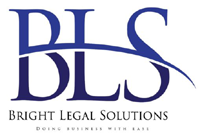Escrows in Thailand
The Concept of Escrows
An escrow can be defined as an impartial holding of funds or documents associated with the sale and transfer of a particular property. Escrow is devised from the viewpoint of protecting consumer rights and avoiding any concerns whatsoever relating to the transfer of the property. However, besides the consumer, an escrow offers protection to other parties such as the seller, agent, and the developer of the property.
Issues with Escrow
Thailand has been attempting to regularize and formalize escrow laws since as early as 2001. However, the attempts could little materialize. At times, it was the lack of understanding and publicity, while on other occasions, other problems impeded the attempts. Nevertheless, the most important challenge has been that of the concept of trust, which is believed to be the major hypothesis that distinguishes the civil and commercial law.
Besides the above, other challenges include the voiding of relationships created by trusts as per section 1686 of the Civil and Commercial Code. Moreover, property developers too don’t stand in the support of escrows as they rely a lot on the 10% to 20% deposit of the selling price to offer financial assistance for construction. Nonetheless, the number of changes and developments that have happened over the years call for the development of new laws, and also demand property developers keep up with it if they’ve got to thrive in the system.
Property in Thailand
The Thai property market has undergone several changes since the last decade. There has been a considerable increase in the number of property transactions, and which has also given rise to a lot of devious developers that, in turn, has resulted in a lot of unfortunate events and dissatisfied customers across the country. These factors demand a regulation that will help protect consumer rights.
As a matter of fact, the Civil and Commercial Code permits a pseudo-escrow system through the application of section 805. It allows the use of dual agents to hold funds (e.g. installments, etc.) to property before the transfer, in case it is drafted to sale and purchase agreement. Nevertheless, it doesn’t properly regulate the role of the agent. Besides, other concerns include its discretionary nature and the lack of its awareness in public.
Escrow Use in Thailand
Through section 9 of the Commercial Banking Act 1962, in 2001, the Thai government induced a letter in the system, which allows banks to facilitate an escrow account services to its customers who’ve entered in a sale and purchase agreement. It involves an escrow agreement outlining the terms and conditions of all the parties involved, along with the payment to the seller or the developer, in particular.
Now, despite the above, the use of escrow in Thailand hasn’t been upto the mark, or rather one may say that it has been abrupt. It doesn’t involve the mandatory practices, and which is why it gets overlooked.
Later, in December 2007, the first draft of the escrow law in Thailand was introduced in the National Legislative Assembly. It intended to safeguard home-buyers from losing money on down payments, and in case the property developer doesn’t fulfill the commitment of completion and the process of the transfer of property.
Nevertheless, a lot of property developers are not in favour of this law, as they predict that it will put a lot of pressure on their financial management, given the fact it will cut down their access to deposits – an important factor on which they are largely dependent.
How is Escrow Currently Applied?
In spite of the existing challenges, escrows are widely used by the larger players in the business, wherein they facilitate clients with an escrow account in a jurisdiction that already has an escrow law. As a consumer, however, you must know the terms and conditions of the escrow. While some of the escrow arrangements are drafted in the sale and purchase agreement, some more, the more intricate ones, in particular, demand a separate escrow agreement to specify the conditions following the transfer.
For more information on escrows, get in touch with us today!
